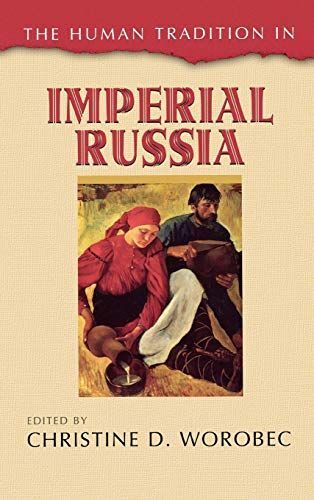
The Human Tradition in Imperial Russia
This compelling set of essays presents richly human stories of individual and group experiences, as well as of key events in the history of Imperial Russia. Beginning with Peter I's dress reforms in the early eighteenth century and concluding with poets arising out of a stratified and largely urban working class between the revolutions of 1905 and 1917, the essays introduce readers to many of the major changes in Imperial Russian history and their consequences. We see the effects of reforms; the consequences of an economy and society built on serfdom; as well as the development of a civil society, the "woman question," urbanization, secularization, and modernity. At the same time, the contributors' nuanced reconstruction of personal and group histories provides important correctives to the traditional grand narratives of Russian history. These microhistories reveal individuals' daily negotiations with authority figures, be they government officials, religious leaders, individuals of another class, or even members of their own class. As this book vividly shows, individuals, groups, and events raised out of obscurity remind us of the messiness of everyday life; of people's dreams, frustrations, and transformations; as well as of their sense of self and the community around them. Contributions by: Rodney D. Bohac, Barbara Alpern Engel, ChaeRan Y. Freeze, William B. Husband, Laura L. Phillips, David L. Ransel, Christine Ruane, Rochelle G. Ruthchild, Rebecca Spagnolo, Mark D. Steinberg, Elise Kimerling Wirtschafter, and Christine D. Worobec